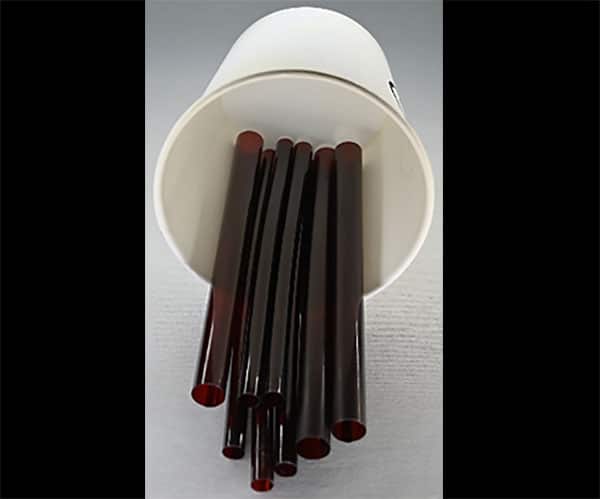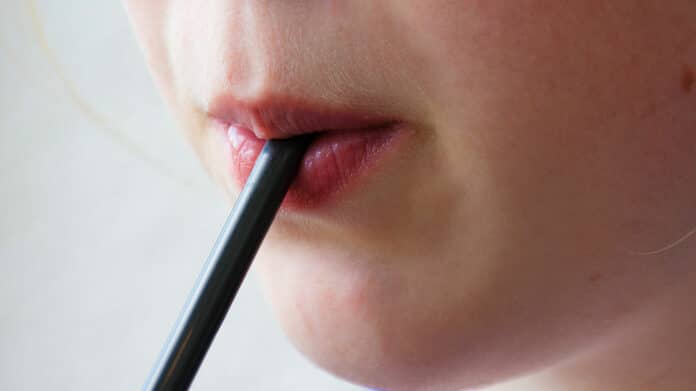Single-use plastics such as straws have caused intricate environmental challenges since they are not readily assimilated into nature at the end of life. Paper straws, on the contrary, become soggy and collapse in drinks resulting in an obnoxious user experience. As efforts to reduce plastic waste take hold, many researchers and companies have turned to plastic alternatives to fabricate straws that are environmentally friendly.
In similar efforts, scientists from South Korea’s Inha University have now developed a new type of bioplastic film from all-natural, degradable materials that can be rolled into a straw that doesn’t get soggy and is stronger than plastic.
These new bioplastic straws made using potato starch and lignin are strong in water but still biodegrade. Lignin’s natural strength could help overcome starch’s brittleness, especially when combined with a bio-based crosslinker, such as citric acid.
To create their straw, researchers combined lignin with either potato starch or polyvinyl alcohol – a more traditional bioplastic material – then added citric acid to that mixture. They then spread the slurry into a thin layer, rolled it into a cylinder, and cured it at a temperature of 356 ºF (180 ºC). The resulting bioplastic naturally self-adhered at the seam, but heat treatment set it and made it even stronger.

In tests, the cylinders were stronger than those made of polypropylene plastic yet still flexible. While the traditional plastic straws remained unchanged after being left outside for two months, the team’s lignin straws degraded significantly. The bioplastic film also offered UV protection, which could be useful for other applications, such as a coating for greenhouse windows.
The researchers say that this material could not only reduce the amount of plastic waste in the environment but also be used to create other, more sustainable bioplastic products from otherwise wasted materials.
Journal reference:
- Dickens O. Agumba, Duc Hoa Pham, and Jaehwan Kim. Ultrastrong, Hydrostable, and Degradable Straws Derived from Microplastic-Free Thermoset Films for Sustainable Development. ACS Omega, 2023; DOI: 10.1021/acsomega.2c07797
